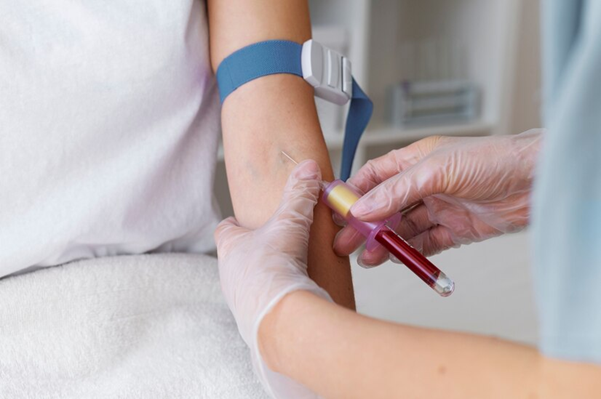What is a Pap Smear and Why is it Crucial for Women’s Health?
- Home

A Pap smear is a simple test that plays a large role in maintaining women’s health. It’s a quick procedure that checks for changes in the cervical cells. This test can catch things early, like cervical cancer, which means treatment can start sooner. Recognizing these changes in time can save lives, underlining the importance of Pap smears. Every woman should know about it and its potential to keep threats at bay.
Understanding the Pap Smear Test
A Pap smear test, also known as Pap test, is named after Dr. Georgios Papanikolaou, who developed it. This test is crucial for picking up on early signs of cervical cancer and other cervical issues. During a Pap smear, a doctor collects cells from the cervix, which is the lower part of the uterus. These cells are then closely examined to see if there are any changes that might lead to cancer. Understanding how the Pap smear functions helps highlight its role in keeping women healthy. It’s a simple yet powerful tool in preventative healthcare, ensuring that any potential issues are caught early.
Navigating the Pap Smear Procedure
When it’s time for a Pap smear, the procedure is straightforward. Here’s a step-by-step guide:
- Preparation: Provide some basic health information to your doctor.
- Positioning: You’ll lie on a table with your feet in holders called stirrups.
- Speculum Insertion: The doctor will gently place a device called a speculum into the vagina. This helps them see the cervix better.
- Cell Collection: Using a small brush or spatula, a sample of cells is taken from the cervix.
- Completion: The speculum is removed, and the test is done.
This procedure is quick and usually only takes a few minutes. While some might feel a bit uncomfortable, the Pap smear procedure is generally painless. Afterward, women can return to their regular activities, ensuring their worries about the test remain minimal.
Why Pap Smears are Vital for Early Detection
The early detection of cervical cancer can be lifesaving. That is why Pap smears are vital. By regularly checking cervical cells, doctors can spot changes before they become serious. If precancerous cells are found, actions can be taken quickly to prevent cancer from developing. Over the years, with regular screenings, the rates of cervical cancer have seen a decline. This underlines how vital these tests are for women everywhere, paving the way for better health outcomes.
Pap Smear Recommendations: Who, When, and How Often?
Knowing when to start and how often to get a Pap smear is essential. Here are the general age recommendations:
- Starting the tests: Women should have their first Pap smear at age 21.
- Ages 21 to 29: Every three years.
- Ages 30 to 65: Every five years, if combined with an HPV test. If not, every three years is still recommended.
Certain situations might require more frequent checks: – Pregnancy: Discuss the Pap smear during pregnancy with your doctor. – History of abnormal results: If you’ve had abnormal results, more regular testing is necessary.
These recommendations can vary based on individual risk factors. Always consult with your healthcare provider to make the best decision for your health.
Decoding Pap Smear Results
After a Pap smear, you’ll want to know what the results say. Here’s a simple breakdown:
- Normal Results: No abnormal cells were found, and everything looks healthy.
- Abnormal Results: This doesn’t always mean cancer. It can show mild changes or infections leading to cell changes.
If the Pap smear reveals abnormal results, follow-up tests or treatments may be suggested. It’s crucial not to panic. Many women with initial abnormalities have results later that return to normal. The goal is to monitor changes closely and act if needed, ensuring that any potential issues do not develop further.
Linking HPV to Cervical Cancer through Pap Smears
Human Papillomavirus, or HPV, plays a key role in developing cervical cancer. Many people can have HPV without symptoms, making it tricky to detect without testing. That’s where Pap smear HPV testing comes in. This testing often runs alongside a Pap smear to catch HPV infections early. Furthermore, the HPV vaccine offers protection against the virus, reducing risks in the most common strains related to cervical cancer, making it a great preventative tool.
Preparing for Your Pap Smear
Getting ready for a Pap smear is simple. Follow these steps for a smooth experience:
- Schedule Wisely: Aim for a time when you aren’t menstruating.
- Avoid Certain Activities: Refrain from using tampons, creams, or douches 48 hours before the test.
- Carry Essentials: Such as your ID and insurance card, to the appointment.
Preparation ensures that the doctor gets the best possible sample, which can lead to more accurate results. By considering these steps, you can make the Pap smear experience more comfortable and stress-free.
Addressing Common Concerns and Myths about Pap Smears
Many women have fears about getting a Pap smear. Here are some common questions and their answers:
- Is it painful?: Most women only feel mild discomfort.
- Will it be embarrassing?: Your privacy is a priority.
- Is it always necessary?: Regular Pap smears keep you healthy by catching changes early.
Dispelling these worries can encourage more women to attend their screenings, highlighting just how routine and important this test is for women’s wellness.
Incorporating Pap Smears into Comprehensive Gynecological Care
Regular Pap smears are an integral part of maintaining overall health. These screenings aren’t just about the Pap smear test; they open discussions about any health concerns. When attending these appointments, doctors can discuss any issues or questions women might have. This encourages a holistic approach to health, reminding women to participate actively in their wellness. Understanding prevention and screenings underscore how powerful being informed can be, highlighting the importance of routine care.
Conclusion
Pap smears are pivotal in ensuring good health for women, detecting any signs of cervical problems early on. By weaving this test into regular health care, women can be proactive about their wellness. If it’s been a while since your last Pap smear, consider scheduling one soon. Keeping on top of these tests is a step towards prioritizing your well-being, making sure nothing slips through the cracks in safeguarding your health. Remember, staying informed and proactive is the key to a healthy life.
